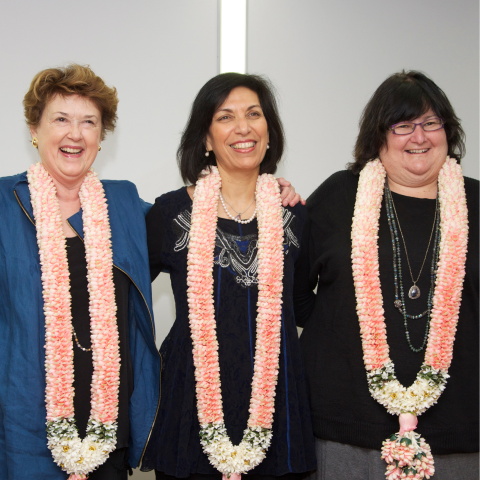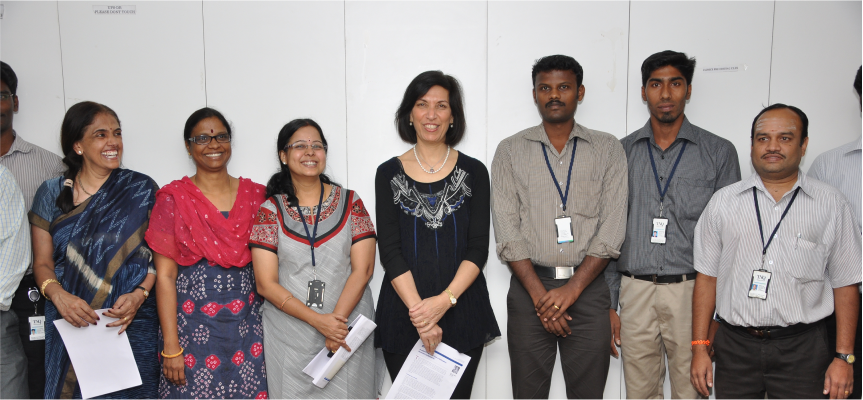This lecture was dedicated to Professor Obaid Siddiqi, visionary scientist and institution builder. Professor Huda Zoghbi’s seminal research on the genetic and molecular mechanisms of neurological diseases and the implication of these findings on the development of treatments for disorders were presented in open lectures in January 2014.


Huda Zoghbi is currently Professor of Pediatrics, Neurology, Molecular and Human Genetics, and Neuroscience, at the Baylor College of Medicine and Director of the Jan and Dan Duncan Neurological Research Institute, a joint endeavour of Baylor and the Texas Children’s Hospital. She is also an investigator at the Howard Hughes Medical Institute. Huda Zoghbi, a physician-scientist in the field of neurogenetics and the recipient of the 2013 pearl Meister Greengard Prize, the 2013 Dickson Prize in Medicine, and the 2011 Gruber Prize in neuroscience was selected as the Featured Speaker of the Cell Press-TNQ India Distinguished Lectureship Series 2014. Professor Huda Zoghbi’s seminal research on the genetic and molecular mechanisms of neurological diseases and the implication of these findings on the development of treatments for disorders were presented in open lectures in January 2014.


She has made a series of notable contributions to our understanding of several distinct classes of inherited neurological disorders. Together with her collaborator, Harry Orr, she has led the polyglutamine field in understanding the role of protein misfolding in pathogenesis and provided a molecular mechanism to explain how diseases such as Spinocerebellar Ataxia Type 1 and Huntington Disease can involve both a gain and loss of function. Zoghbi then discovered that the sporadic disease Rett Syndrome is caused by mutations in MECP2.
When she realized that slight increases or decreases in expression of the normal protein can also cause neurological phenotypes in mice, she predicted that duplications of the gene will cause disease and indeed she and others tested clinical populations and identified human children with progressive neuropsychiatric syndrome. Zoghbi’s work in neurodevelopment led to the discovery of the gene Math 1, which governs the development of several components of the proprioceptive, balance, hearing, and vestibular pathways, and is critical for the central regulation of respiratory rhythm.
